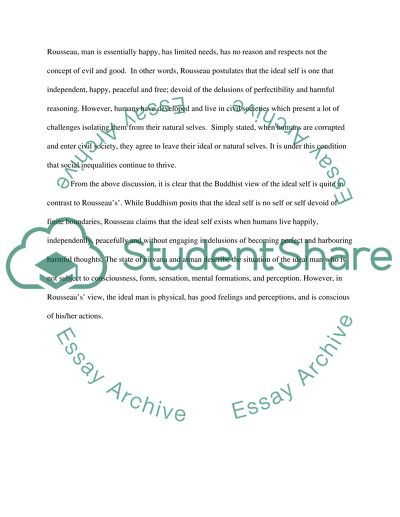Contrast the Buddhist ideal of the self with Rousseau's Essay. Retrieved from https://studentshare.org/philosophy/1595115-contrast-the-buddhist-ideal-of-the-self-with-rousseaus
Contrast the Buddhist Ideal of the Self With Rousseau'S Essay. https://studentshare.org/philosophy/1595115-contrast-the-buddhist-ideal-of-the-self-with-rousseaus.


